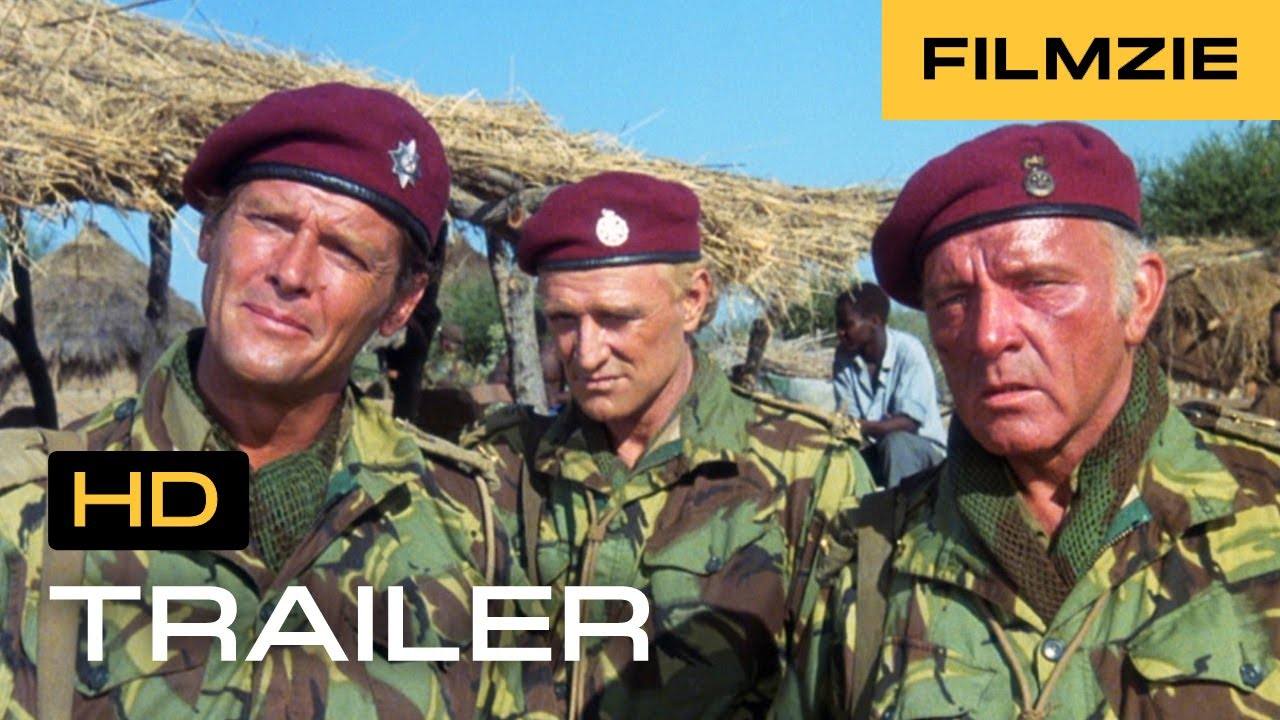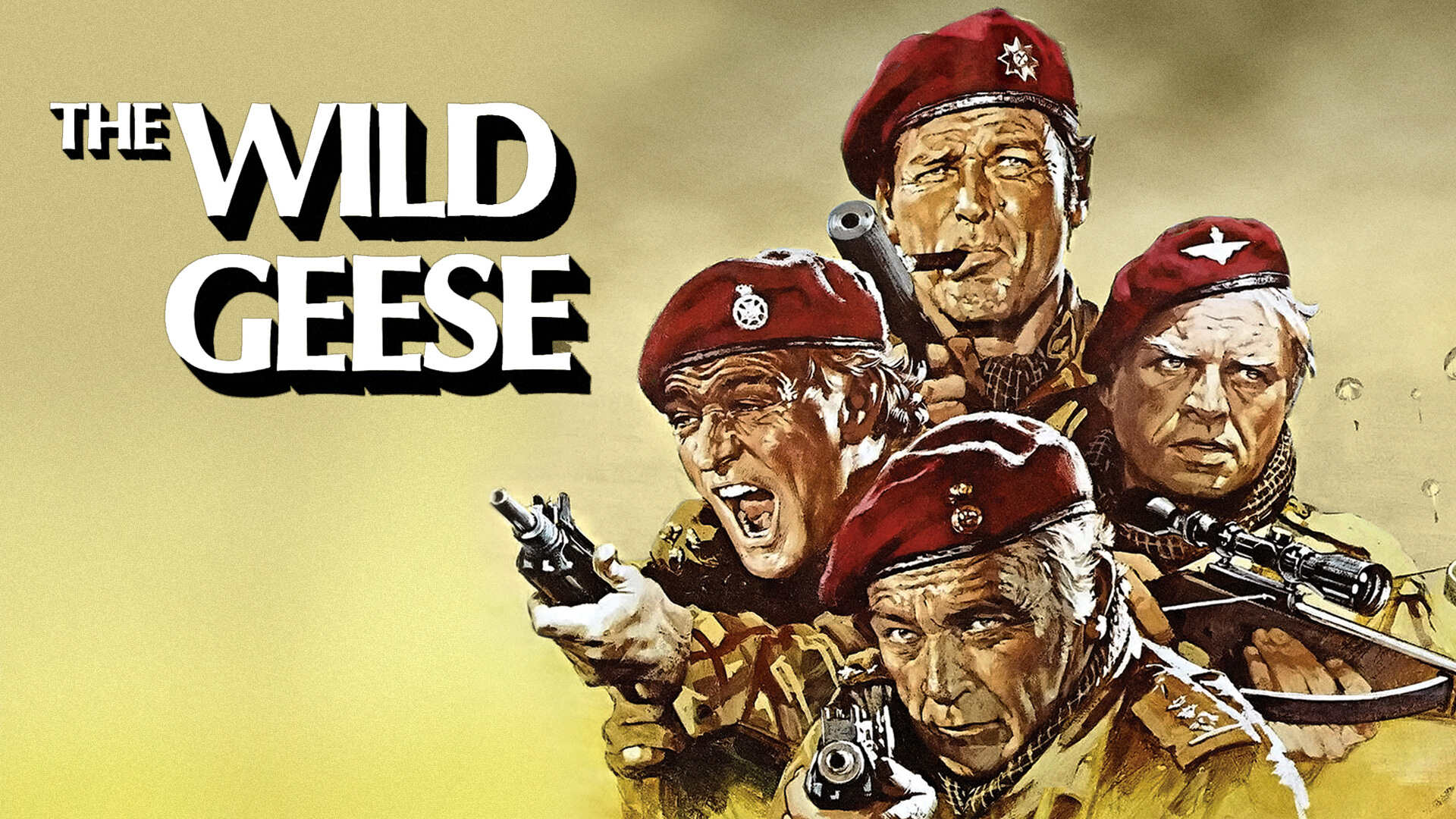The Wild Geese (1978)

**Title: “The Wild Geese” (1978) – Honor, Loyalty, and the Harsh Realities of War**
Directed by Andrew V. McLaglen and released in 1978, “The Wild Geese” stands as a classic war film that immerses viewers in a gripping tale of adventure, sacrifice, and camaraderie. Set against the backdrop of political turmoil and post-colonial tensions in Africa, the film unfolds with a narrative steeped in honor, loyalty, and the moral complexities faced by mercenaries navigating the brutal realities of conflict.

The storyline revolves around a group of seasoned mercenaries, led by the charismatic Colonel Allen Faulkner, portrayed by Richard Burton, who are hired to undertake a daring mission. Their objective: to rescue an African leader, President Julius Limbani, from captivity in a remote African nation embroiled in civil unrest. Joined by a diverse ensemble cast including Roger Moore as Lieutenant Shawn Fynn and Richard Harris as Rafer Janders, the mercenaries embark on a perilous journey that tests their skills, resolve, and sense of moral duty.

Central to the film’s narrative is the exploration of themes such as honor and loyalty amidst the chaos of war. As the mercenaries navigate treacherous landscapes and face formidable adversaries, they grapple with personal demons and conflicting motivations. Colonel Faulkner, in particular, emerges as a complex figure whose unwavering commitment to his mission is tempered by a growing awareness of the human cost of their actions.

Director Andrew V. McLaglen infuses “The Wild Geese” with gritty realism and evocative cinematography, capturing the harsh beauty of the African terrain and the intensity of combat sequences. The film’s action scenes are meticulously choreographed, showcasing the camaraderie and tactical prowess of the mercenaries while underscoring the ethical dilemmas inherent in their profession.

Thematically, “The Wild Geese” delves into the complexities of post-colonial Africa, where geopolitical interests and internal power struggles collide. The portrayal of President Limbani’s captivity symbolizes the struggles for independence and sovereignty faced by many African nations during this period. The mercenaries, initially motivated by financial gain, find themselves embroiled in a larger geopolitical struggle that forces them to confront their own moral compass and the consequences of their actions.
Beyond its action-packed sequences, “The Wild Geese” resonates with poignant moments of humanity and introspection. The relationships forged among the mercenaries, characterized by mutual respect and shared experiences, offer glimpses into the bonds that transcend the battlefield. The film’s ensemble cast delivers powerful performances that breathe life into their characters, highlighting their vulnerabilities and resilience in the face of adversity.

Critically acclaimed for its authenticity and narrative depth, “The Wild Geese” remains a timeless portrayal of mercenaries’ lives and the moral dilemmas they confront. The film received praise for its ensemble cast’s performances, the authenticity of its military tactics, and its exploration of complex themes within the framework of an action-packed war drama.

In conclusion, “The Wild Geese” (1978) stands as a testament to the enduring appeal of classic war cinema, celebrated for its compelling storytelling, memorable characters, and exploration of profound themes. Andrew V. McLaglen’s directorial vision, coupled with the stellar performances of its ensemble cast, ensures that the film continues to captivate audiences with its portrayal of honor, loyalty, and the harsh realities faced by those caught in the midst of conflict. As viewers revisit this cinematic gem, they are reminded of the timeless allure of adventure, sacrifice, and the enduring quest for meaning in the tumultuous landscape of war.









